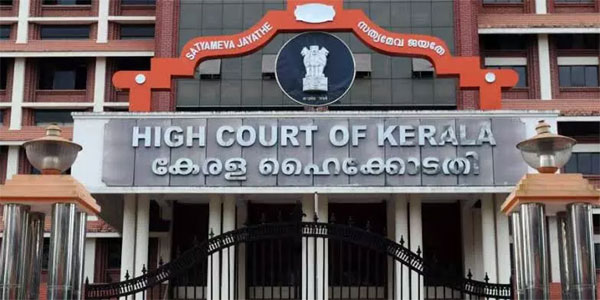Daijiworld Media Network - Kochi
Kochi, Aug 6: In a strong rebuke to the National Highways Authority of India (NHAI), the Kerala High Court on Wednesday suspended toll collection on the Edappally-Mannuthy stretch of NH 544, citing unsafe and obstructed road conditions. The court ruled that if the NHAI or its agents fail to provide safe, unhindered, and regulated access to highways, they cannot impose user fees on the public.
The ruling came from a division bench of Justices A Muhamed Mustaque and Harisankar V Menon, who were hearing a batch of petitions challenging toll collection on the highway stretch that is currently affected by heavy congestion due to ongoing construction, poor maintenance, and blocked service roads.

The court ordered that toll collection be suspended for four weeks and directed the central government to take appropriate action within that period to address public grievances. The judges emphasized that toll collection must be backed by the assurance of basic infrastructure standards, and that this assurance forms the basis of the statutory right to collect fees from users.
They highlighted that the relationship between the public and the NHAI is governed by the public trust doctrine, and that any violation of this trust undermines the legal right to demand tolls. The court made it clear that contractual obligations between the state and private concessionaires cannot take precedence over public interest, and that agreements under contract law do not override constitutional responsibilities.
Rejecting NHAI's contention that suspending tolls would lead to contractual liabilities, the bench observed that entitlement to collect tolls arises from statutory provisions, not private contracts. It stated that the obligation to pay tolls is conditional upon the quality of the service provided, and if users are not receiving the intended benefit, they cannot be forced to pay.
The bench also noted that NHAI had ignored repeated public complaints since February 2025 and failed to take any meaningful action to address the deteriorating road conditions. The judges expressed concern over the authority's apathy and lack of coordination with the central government to resolve the issue.
They criticized the absence of any management standards by the central government for addressing such situations and stated that the issue now falls under the Centre’s responsibility. The government, in consultation with NHAI, the state chief secretary, and the concessionaire, must determine whether the toll should be suspended further, reduced, or otherwise modified.
The ruling serves as a significant assertion of the public’s rights in the face of failing infrastructure and could have broader implications for toll collection practices across the country. The court's message was clear: tolls are not just payments, but part of a social contract that demands accountability in return.